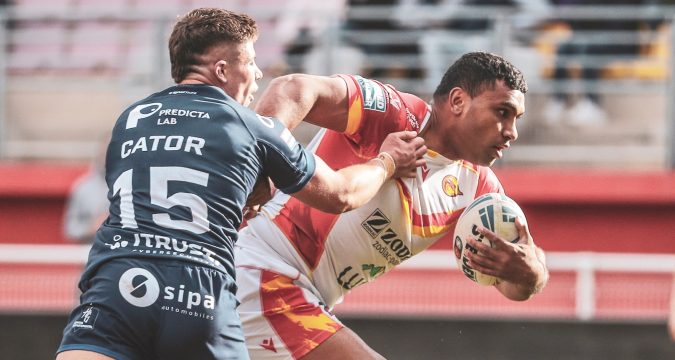 There are conflicting visions on the future of Super League and whether French clubs should be in or out.
I HATE clickbait on the internet. Especially when it involves rugby league. I’ve learned to be very cautious with ‘thrilling’ or ‘exciting’ news about Catalans Dragons or Toulouse Olympique. So, on the internet, if I’m offered the
There are conflicting visions on the future of Super League and whether French clubs should be in or out.
I HATE clickbait on the internet. Especially when it involves rugby league. I’ve learned to be very cautious with ‘thrilling’ or ‘exciting’ news about Catalans Dragons or Toulouse Olympique. So, on the internet, if I’m offered the Treiziste Diary: Will French clubs be kicked out of Super League or the heart of NRL vision?
 There are conflicting visions on the future of Super League and whether French clubs should be in or out.
I HATE clickbait on the internet. Especially when it involves rugby league. I’ve learned to be very cautious with ‘thrilling’ or ‘exciting’ news about Catalans Dragons or Toulouse Olympique. So, on the internet, if I’m offered the
There are conflicting visions on the future of Super League and whether French clubs should be in or out.
I HATE clickbait on the internet. Especially when it involves rugby league. I’ve learned to be very cautious with ‘thrilling’ or ‘exciting’ news about Catalans Dragons or Toulouse Olympique. So, on the internet, if I’m offered the 